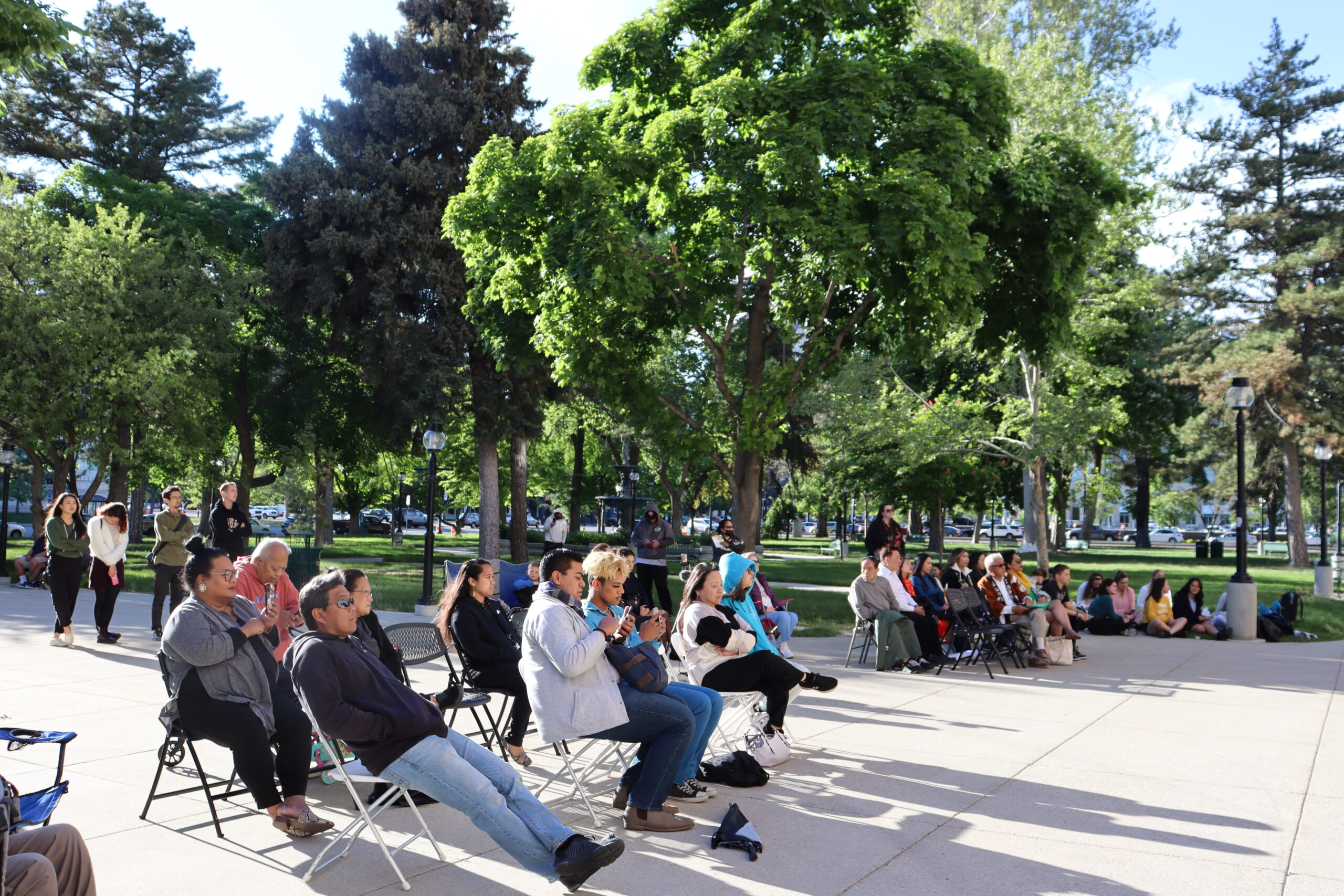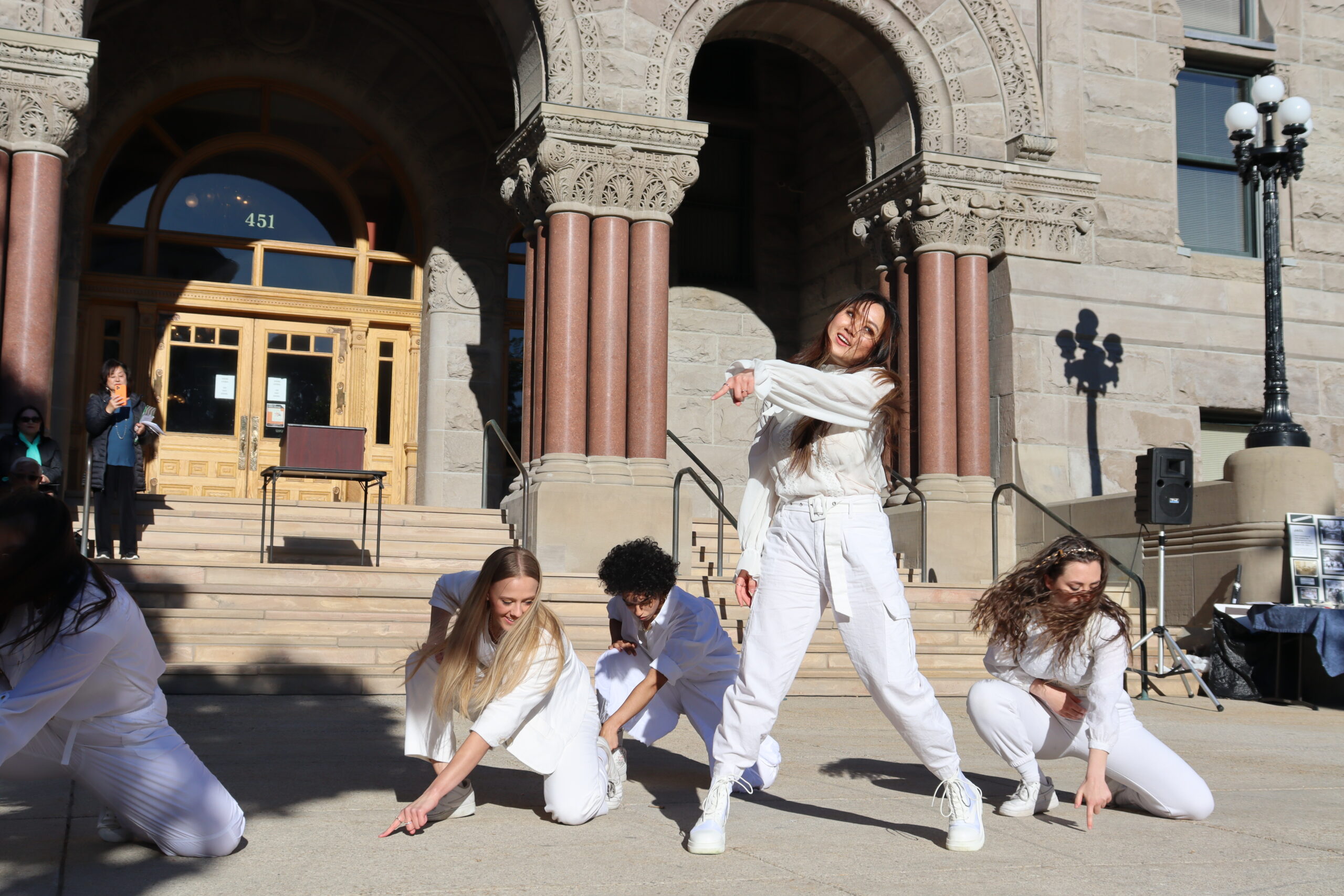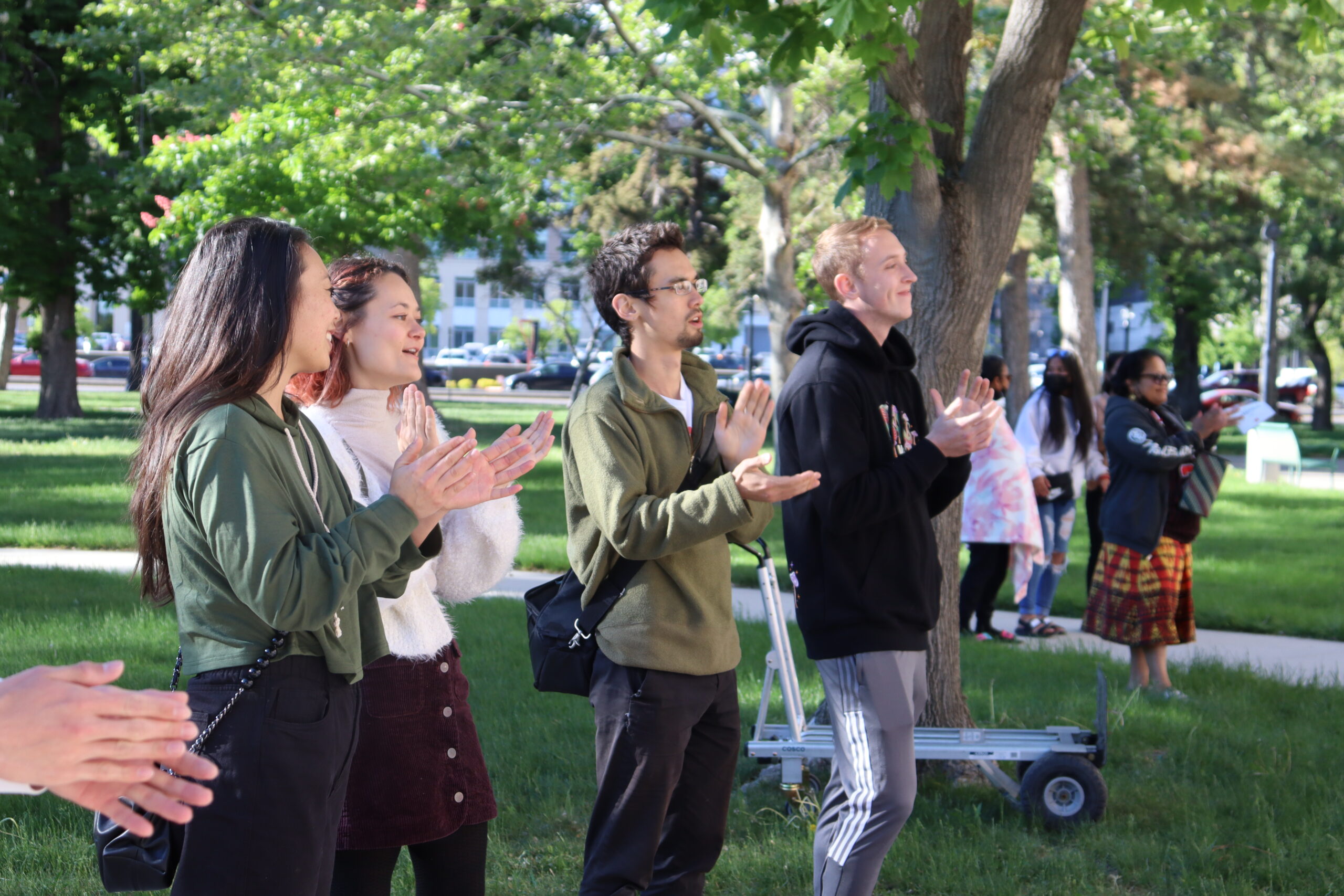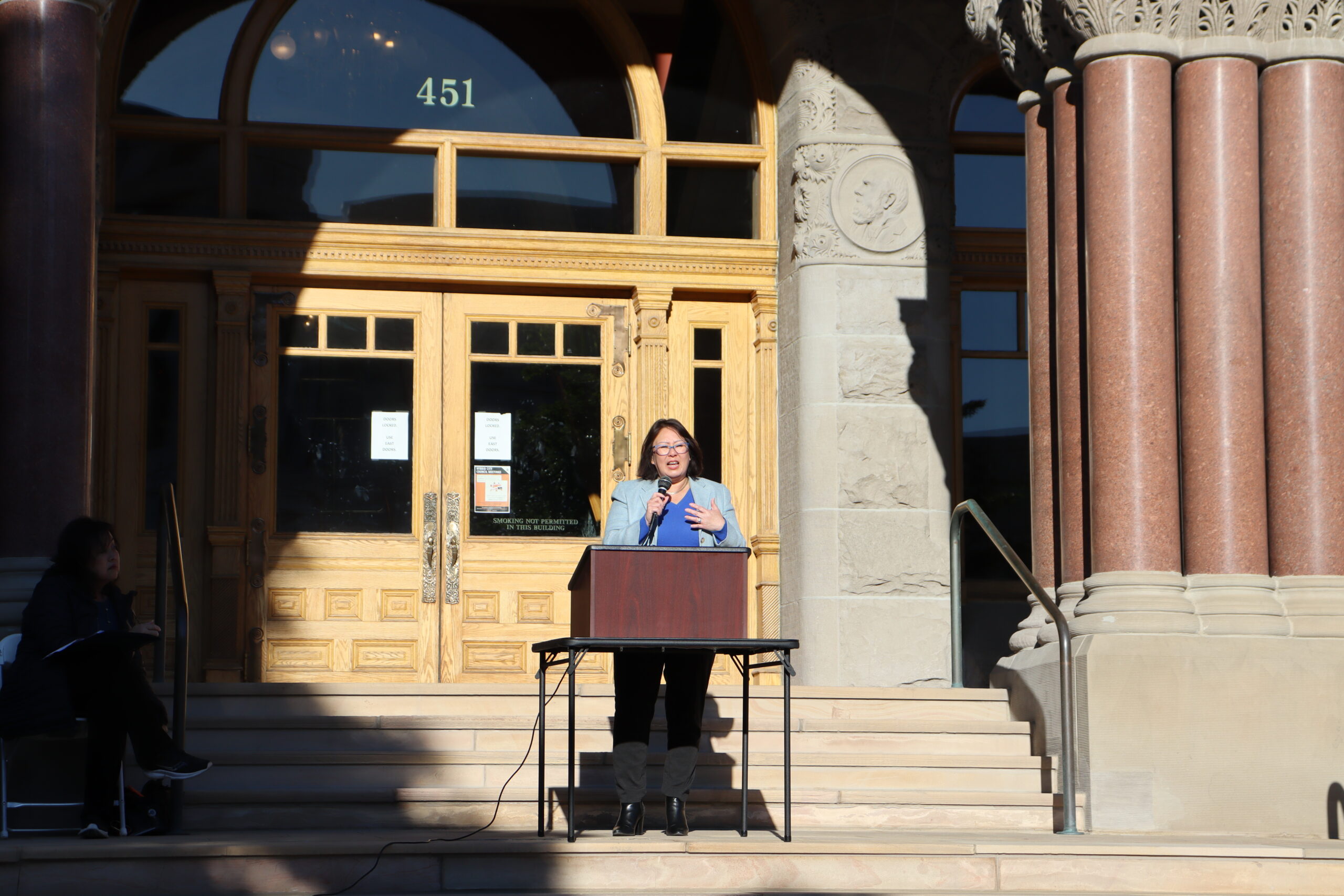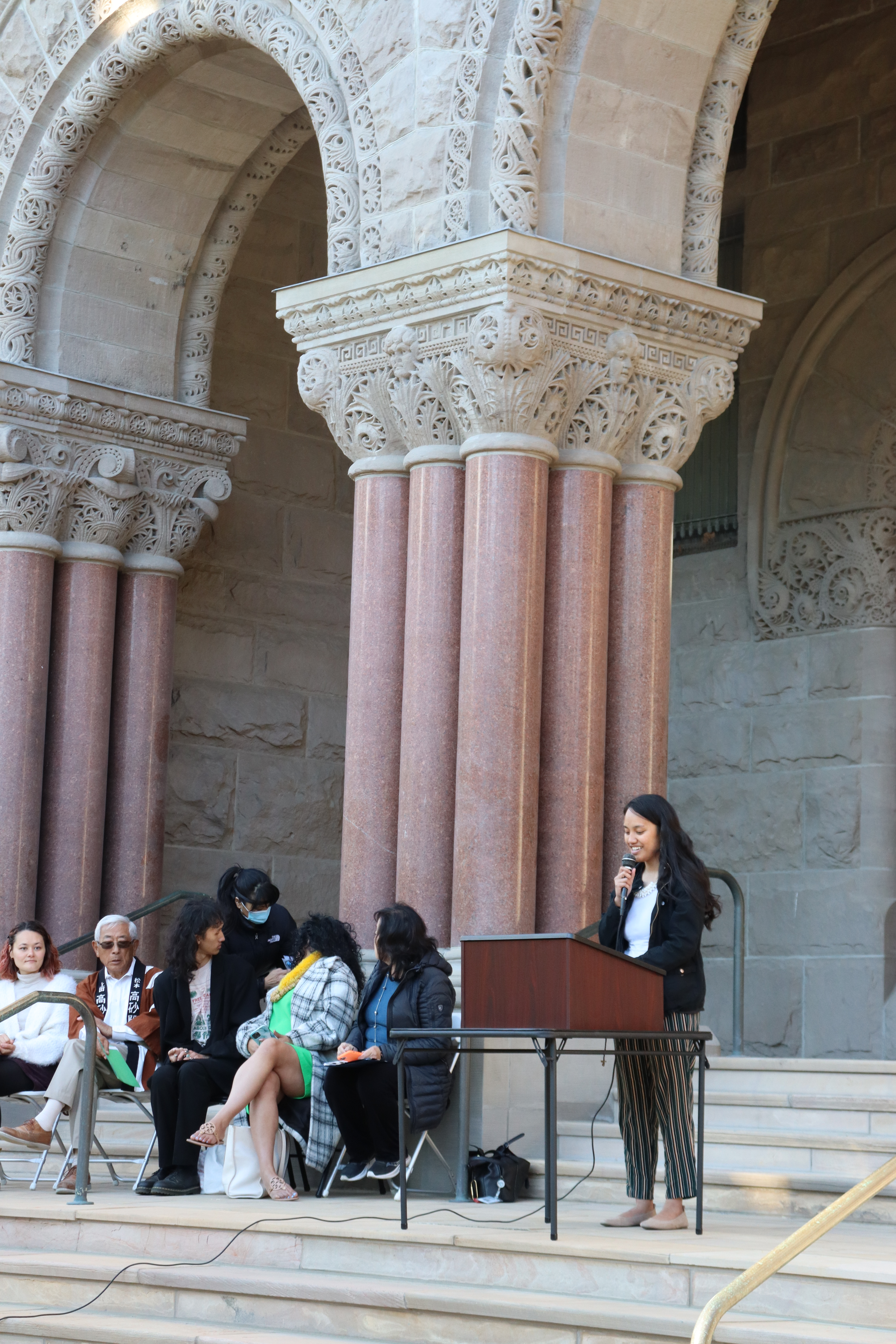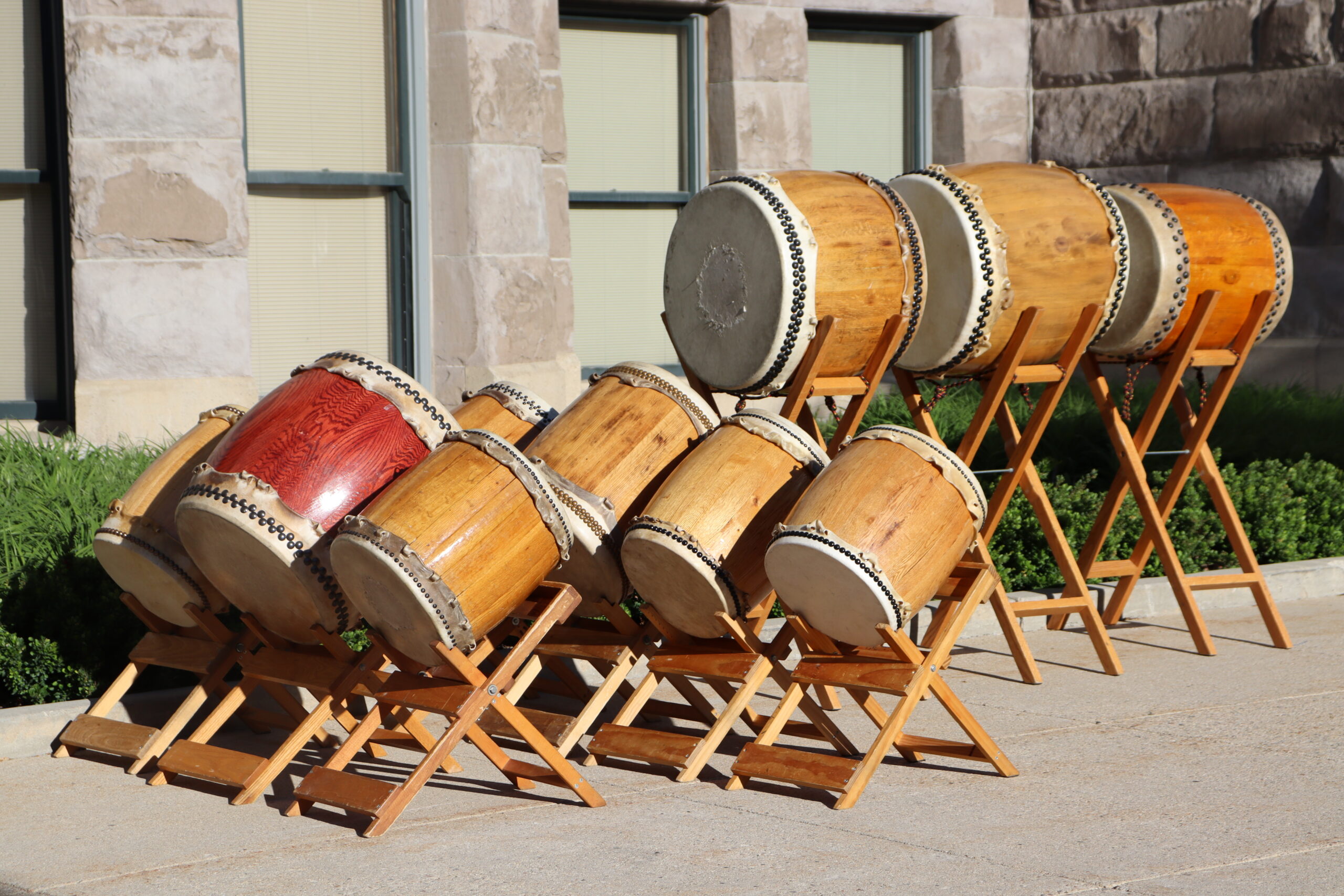Asian Americans and Pacific Islanders recognized and celebrated Asian American and Pacific Islander (AAPI) Heritage Month during the month of May.
On May 20, the Asian American Collegiate Association organized a rally to celebrate “the contributions that generations of AANHPI have made to Utah history, society and culture” at Washington Square Park in Salt Lake City.
The rally consisted of speeches from government officials, university students and diversity advocates and performances by Golden Hour K-pop dance team and Ogden Buddhist Taiko group.
BYU sophomore Tessakiree Garber performed in the rally with Golden Hour K-pop dance group. Garber’s mother is from Taiwan. Garber said that AAPI Heritage Month has helped her appreciate the Asian American and Pacific Islander communities, especially on social media.
“It helps me appreciate the privilege that I have, because I get to hear all my friend’s stories and family’s stories. It helps me appreciate what I’ve been given. I appreciate my Asian side and I appreciate my white side,” Garber said. “It makes me appreciate both sides of my culture equally.”
Representative Karen Kwan, who serves as the Minority Caucus Whip and represents district 34, spoke at the rally. Kwan said she feels like it’s her responsibility to be a representative of the AAPI community and to tell her ancestor’s stories. Her ancestor’s story starts with a small ghost town named Terrance.
Kwan said that Terrance used to be one of the largest railroad towns built in Utah. Today, Terrance is a rich archaeologist site.
According to the Utah Division of Arts and Museums, 75% of the Transcontinental Railroad workforce was made up of Chinese immigrants. These Chinese immigrants left their families and homes in search of economic opportunities.
Utah partnered with the Bureau of Land Management to do the first ever archaeological dig in a Chinese railroad worker’s house.
“We are learning so much about what could’ve been my ancestor, because I don’t know the stories. This is literally my life line to my ancestor. This site has such spirituality for me. It’s such an important site that we must protect it,” Kwan said.
Franscine Anmontha Malieitulua is a student adviser for the Pacific Islander Student Association at the University of Utah and the communication officer for the Republic of the Marshall Island National Nuclear Commission. Malieitulua shared the story of her grandfather who was a victim of nuclear testing.
“This is part of the Marshallese history, that didn’t just belong to us, but the U.S. as well,” Malieitulua said.
Malieitulua said that for many years it was the Marshallese fighting for justice, but that now, they have many communities, organizations and partners that stand beside them. Malieitulua reminded the audience that they are not alone.
“Today we have ways to share our voice and stories with others. I encourage all the young folks of today to ask their elders about their experiences. You will learn so much about your history,” Malieitulua said.
Malieitulua said she often wonders what life would be like if she did not ask her grandfather about his upbringing. She said the answer is lost.
“When you learn something from people, or from a culture, you accept it as a gift,” Malieitulua said, quoting Yo-Yo Ma, “and it is your lifelong commitment to preserve it and build on it.”
Malieitulua encourages the younger generation to continue their ancestors’ legacy and create their own.

